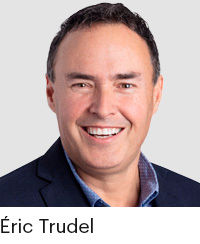Novo Nordisk's Wegovy, an anti-obesity medication approved by Health Canada in 2021, hit the Canadian market on May 6, 2024, and has since seen a surge in demand, according to some insurers. Others remain hesitant to comment on the trend.
Wegovy's launch came shortly after Novo Nordisk's other drug, Ozempic, made headlines due to shortages. Originally intended for type 2 diabetes treatment, Ozempic also reduces appetite, leading to a rush for the injectable medication. Some insurers even implemented measures to ensure it was not being used for cosmetic purposes alone.
Weight management on the rise
According to the June edition of the Mental Health Index published by TELUS Health, nearly half (46 per cent) of the 3,000 workers surveyed expressed concerns about their weight. This concern has impacted their mental health, with their mental health score falling five points below the national average of 63.9.
Wegovy relieves pressure
Given the rush for Ozempic, there wasn't enough of the raw material left to produce Wegovy. — Neda Nasseri
Rosalie Wyonch, a senior policy analyst at the C.D. Howe Institute, noted in her reports on the Ozempic shortage that the introduction of new anti-obesity drugs and expanded production would likely ease supply pressures.
However, she cautioned that financial pressure on insurers will persist, necessitating coverage adjustments and premium increases to manage the rapid growth in claims and associated costs.
In an interview with the Insurance Portal, Neda Nasseri, product manager at Desjardins Insurance, explained that the delay between Wegovy's approval and its market release was due to high demand for Ozempic.

"Given the rush for Ozempic, there wasn't enough of the raw material left to produce Wegovy. Everything went to Ozempic," she explained.
With the active ingredient back in supply, Wegovy's commercialization has now begun. "The U.S. is a large market. A lot of our supply went there," Nasseri added.
Like Ozempic, Wegovy is administered as a weekly subcutaneous injection and also reduces appetite. Both drugs are based on the same active ingredient, semaglutide, a glucagon-like peptide-1 (GLP-1) analogue, an intestinal hormone secreted by enteroendocrine cells primarily located in the ileum and colon.
Wegovy's rapid uptake

Eric Trudel, Executive Vice President and Lead, Group Insurance, at Beneva, shared insights with the Insurance Portal on the claim trends for Wegovy since its introduction to the Canadian market on May 6, 2024.
Beneva received its first reimbursement request on the very day of Wegovy's market launch, Trudel said in an interview. "We have been closely monitoring Wegovy claim trends since its release in Canada. The uptake is quite remarkable. We've already reimbursed over $1 million in just two months. That's significant," Trudel added.
Beneva offers plan sponsors the option to include an "anti-obesity" clause in their group plans. Expenses for a drug like Wegovy are covered under group plans with this clause. "About half of our insured members have the anti-obesity clause, representing approximately 600,000 people. Most of our large public sector groups have opted to include it," Trudel noted.
If the current trend in Wegovy reimbursements continues, Trudel expects claims to reach $4.6 million by the end of 2024. "If all our groups had the anti-obesity clause, the cost would double."
In light of Beneva's Wegovy reimbursement data, the insurer has adjusted the cost for adding the anti-obesity clause to a group plan. Trudel estimates that a group will pay an additional 8 per cent for drug coverage if the clause is added.
Since drug coverage accounts for the majority of a group plan's costs, adding the clause will lead to a 6 per cent increase in total plan costs, including disability and life insurance for Beneva's clients. "That's a significant cost," Trudel commented.
Before Wegovy's arrival, Beneva estimated a 3 per cent increase in overall plan costs and a 4 per cent increase in drug coverage costs for adding the anti-obesity clause.
Potential savings
Despite the costs, Beneva recommends its clients adopt the anti-obesity clause. "Obesity is considered a chronic disease. Why cover someone for hypertension and not for obesity? The main reason for rejecting the clause is that the Régie de l’assurance maladie du Québec (RAMQ), Quebec drug insurance plan, does not cover Wegovy," Trudel pointed out.
At the time of writing, Wegovy is not listed on the RAMQ's covered drug list, nor is it covered by the Ontario Drug Benefit Program. However, Trudel believes that government coverage would be beneficial, as a body mass index (BMI) over 30, which marks the onset of obesity, often leads to heart problems and osteoarthritis.
Nasseri also sees significant benefits in covering anti-obesity drugs. "Will it end up costing more? Perhaps not, because we'll save on the costs of related medications," she speculated.
She emphasized that obesity is linked to 13 types of cancer, as well as diabetes, hypertension, and depression. "For Desjardins, obesity is like any other disease," Nasseri stated. She added that covering a drug for migraines or obesity is the same in principle. "Wegovy is included in our standard plans. If a plan sponsor does not want it, they must explicitly request its removal," she explained.
Nasseri does not consider Wegovy an expensive drug and expects higher usage rates but has not observed anything alarming to date. "Volumes seem to be stabilizing," she added.
Strong demand
Trudel estimates the average annual cost of Wegovy at $5,500. Reimbursing 80 per cent of the drug's cost to the insured is the most common formula in Beneva's plans, which Trudel says is standard in the industry. However, more and more plan sponsors are opting to reimburse only 70 per cent of drug costs.
Demand shows no signs of slowing down. "We see that Wegovy is more accessible and has fewer side effects than older drugs. Physicians are prescribing it widely," observed Eric Trudel of Beneva.
He noted that physicians are replacing older medications like Novo Nordisk's injectable Saxenda (liraglutide), Roche's Xenical tablets (orlistat), or Bausch Health's Contrave (naltrexone and bupropion) with Wegovy. Others, he said, continue to prescribe the older drugs because they do not cause adverse side effects in their patients.
Trudel described Wegovy as a higher-dose version of Ozempic, noting that physicians were prescribing double the dose of Ozempic to treat obesity. Wegovy is approved for doses ranging from 1.7 to 2.4 milligrams (mg), while Ozempic is dosed at 0.5 mg or 1 mg.
Nasseri also observed a shift from older drugs to Wegovy among insured members, noting that they tend to abandon older medications due to their lower efficacy or unwanted gastrointestinal side effects.
Cautious responses from major insurers
In 2023, Desjardins and Beneva held 6.4 per cent and 6.1 per cent of the Canadian market, respectively, according to data from the Fraser Group, a market analysis firm. However, these insurers dominate the Quebec market, where Beneva holds a 27.4 per cent share and Desjardins 19.1 per cent.
A GreenShield spokesperson acknowledged obesity as a serious and complex chronic disease in a response to the Insurance Portal. “Accordingly, we take a comprehensive chronic disease management approach, which includes providing access to evidence-based effective drug treatments, including Wegovy, Saxenda and Contrave.”
“Over the past three months, we have observed a mix of claimants switching to Wegovy from longer-standing drug treatments, and net new claimants. We continue to monitor the trends closely, as we do for all drugs on our formularies,” the spokesperson added.
The issue of Wegovy appears delicate for the major insurers in the Canadian insurance market. Some declined to comment when contacted for this article. Others said they are currently assessing the situation and would be willing to provide feedback later.
Canada Life, the top group insurance provider by market share, provided a brief email response. "Canada Life evaluates new prescription drugs approved by Health Canada, including Wegovy, to determine their eligibility under the various plans offered. Coverage is provided according to the design of the applicable plan," replied a spokesperson.
The second-largest market player, Sun Life, referred Insurance Portal to the Canadian Life and Health Insurance Association (CLHIA), which responded by stating that it did not have detailed information on the subject.
Manulife, the third-largest player in the market, stated that it is in the evaluation phase. "We may be able to share data in a few months," said Alexis Gerbeau, Head of Manulife Quebec and Chief Financial Officer, Group Insurance, Manulife.
At Medavie Blue Cross, Regional Vice President Charles St-Laurent stated that the insurer could not comment yet. "We are still reviewing our position on the reimbursement conditions for this drug," he explained. St-Laurent said he will be willing to discuss the matter once Medavie Blue Cross finalizes its position, likely by mid-September.




